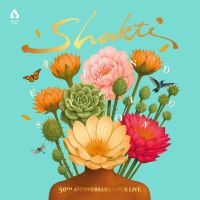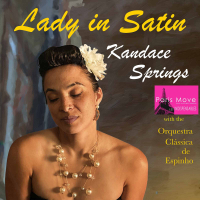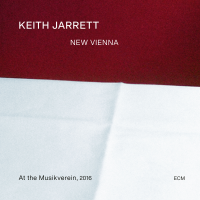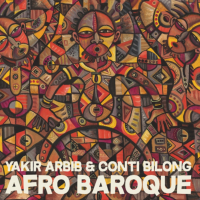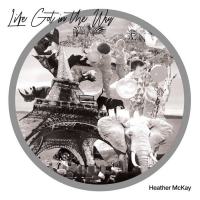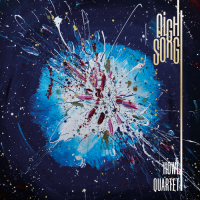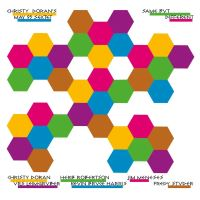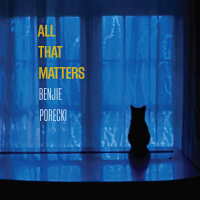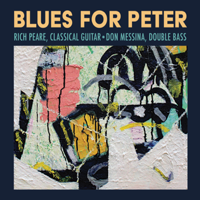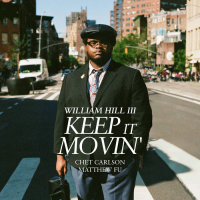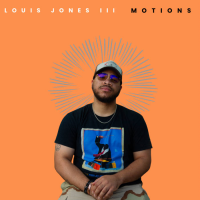Home » Jazz Articles » Album Review » Peggy Lee: The Complete Peggy Lee & June Christy Capitol...
Peggy Lee: The Complete Peggy Lee & June Christy Capitol Transcription Sessions
There are 99 songs on these CDS, 27 from Christy and 72 from Lee. Most are standards, except for a very few forgettable tunes like "A Nightingale Can Sing The Blues" and "Wherever There's Me, There's You." The licensing agreement provided that none of the songs had been recorded commercially by the artists. This is a very young June Christy on these cuts and was still developing her style. She had just joined the Stan Kenton aggregation hadn't yet made a commercial recording with them... or for anyone else. Her first big hit with Kenton, "Tampico," was still to come. The early cuts on this compilation show the influence of Billie Holiday. It isn't until the 1946 sessions that we begin to hear the cool, vibrato-less style that was to become Christy's signature.
The group backing her, the Kentones, were members (obviously) of the Stan Kenton band. Boots Mussilli's alto is prominent during the 1945 session, especially on "Can't Help Lovin' That Man" and Christy's husband-to-be Bob Cooper assumes the sax role on the 1946 sessions. A surprise is Gene Roland's valve trombone which solos on four of the cuts. Roland is better known as a Kenton arranger than as a star on the trombone, but he holds up very well as a soloist.
In contrast to Christy, Lee was well on her way to becoming a prominent star in the vocal galaxy. Perhaps that explains why she was allotted most of the room on the Capitol transcriptions. Her stint with Benny Goodman produced a hit for her, "Why Don't You Do Right" and her style was not to change much over her long career. In other words, on these cuts, she sounded like the Peggy Lee millions admired for the next 50 years. Younger in sound, perhaps, but her sultry, laid back swinging technique was already in place. Lee is backed by two groups, Frank DeVol's Orchestra and Dave Barbour's Four Of A Kind. Barbour's guitar plays a major role on these cuts in making the sessions work. The intimacy created by the Barbour/Lee marriage comes through on such takes as "Taking A Chance On Love" and "Lover Come Back To Me." Buddy Cole is a strong and sympathetic accompanist on the small group sessions.
As is the case in all Mosaic releases, there's an informative booklet about the sessions and the artists. The one accompanying this album is written by the reigning guru of things regarding vocal jazz, Will Friedwald. The booklet is informative and well-written, complete with photos. Friedwald manages to avoid making any of his outlandish remarks that often characterize some his other writings. This album is a must have for Christy and Lee fans as well as for those disciples of this genre.
Personnel
Peggy Lee
vocalsJune Christy
vocalsJune Christy and the Kentones, June Christy - Vocals; Ray Wetzel, John Anderson, - Trumpet; Kai Winding - Trombone; Gene Roland - Valve Trombone; Boots Mussilli - Tenor Saxophone; Bob Cooper - Tenor saxophone; Fred Zito/Arnold Ross - Piano; Dave Barbour - Guitar; Eddie Safranski - Bass; Eddie Spencer/Shelley Manne - Drums, December 13&27, 1945, July 31 & August 31, 1946, LA
Peggy Lee and Four Of A Kind, Peggy Lee - Vocal; Dave Barbour/George Van Epps - Guitar; Buddy Cole Piano, Organ, Celeste; Hal Schaeffer - Piano/ Celeste; Phil Stephens - Bass; Tom Romerosa/ Nick Fatool - Drums May 7,14 & 28, June 11, July 18.1946, December, 18,1947, April 4 & 8, 1949, LA
Peggy Lee with the Frank DeVol Orch. Peggy Lee -Vocal; Uan Rasey, Abe Benike, Irv Shulkin, Lenny Mach - Trumpet; Si Zentner, George Faye, Paul Wiegand, Trombone; Dick Perissi - French Horn; Skeets Herfurt, Julius Kinsler, Ron Perry, Ted Romerosa,J erry Kasper,Lou Palange, Paul McLarand - Reeds; Henry Sugar, Joe Livoti, Victor Arno, Joe Quadri, Walter Edelstein, Ted Rosen- Violin; Jacob Kaz, Paul Lowenkron, Elizabeth Sugar, Viola; Julius Tannenbaum, Joe Saxton, Fred Goerner - Cello; June Weiland - Harp; Dave Barbour - Guitar; Buddy Cole - Piano; Phil Stephens, Fred Whiting - Bass; Tom Romerosa, John Cyr - Drums, June 10,1946,July 29,1946
Album information
Title: The Complete Peggy Lee & June Christy Capitol Transcription Sessions | Year Released: 1998 | Record Label: Mosaic Records
Tags
PREVIOUS / NEXT
Support All About Jazz
 All About Jazz has been a pillar of jazz since 1995, championing it as an art form and, more importantly, supporting the musicians who make it. Our enduring commitment has made "AAJ" one of the most culturally important websites of its kind, read by hundreds of thousands of fans, musicians and industry figures every month.
All About Jazz has been a pillar of jazz since 1995, championing it as an art form and, more importantly, supporting the musicians who make it. Our enduring commitment has made "AAJ" one of the most culturally important websites of its kind, read by hundreds of thousands of fans, musicians and industry figures every month.









